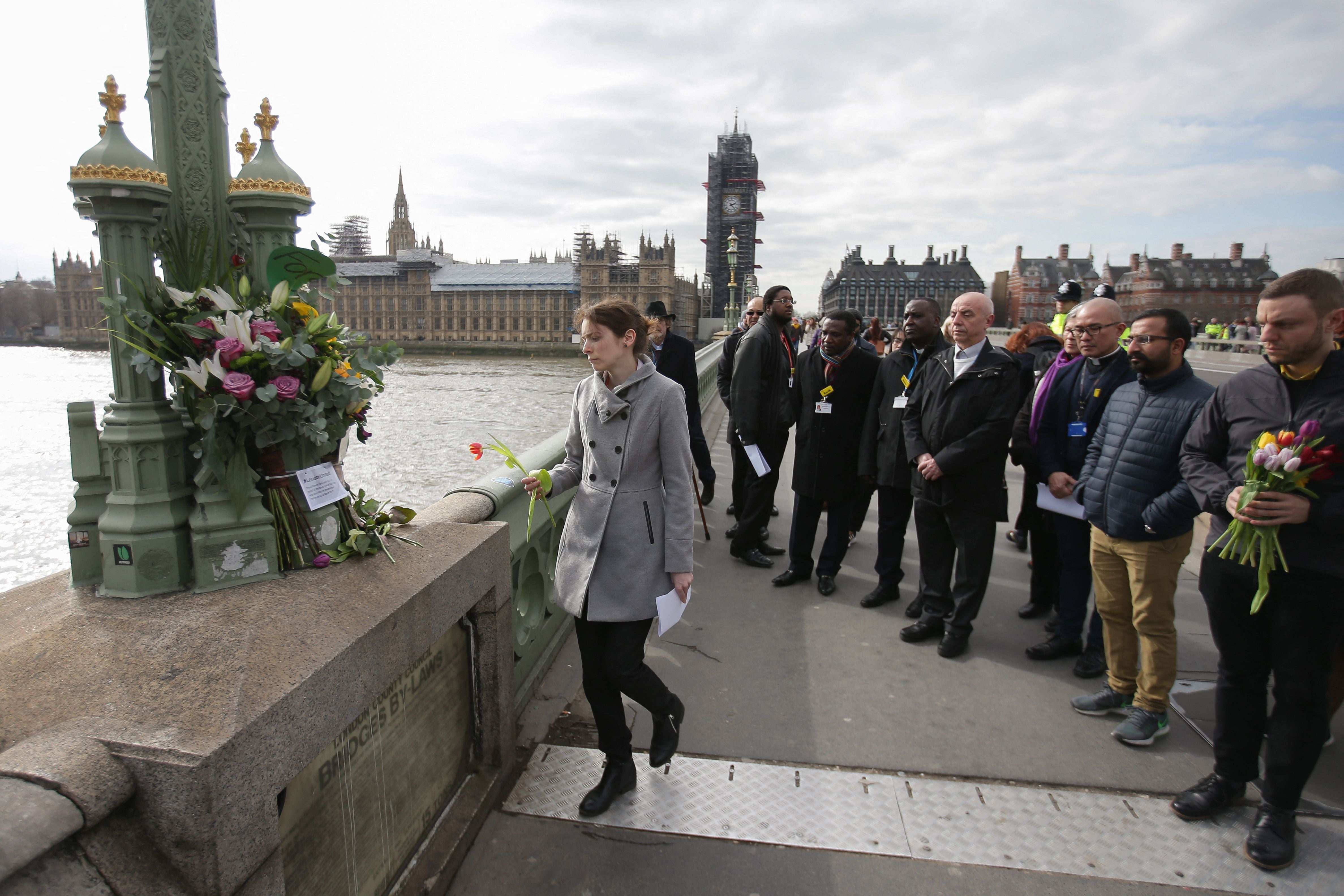I survived the Westminster Bridge attack – and found my life’s purpose
Survivors Against Terror is launching a charter so the UK can be better prepared to help survivors of the next attack


Your support helps us to tell the story
From reproductive rights to climate change to Big Tech, The Independent is on the ground when the story is developing. Whether it's investigating the financials of Elon Musk's pro-Trump PAC or producing our latest documentary, 'The A Word', which shines a light on the American women fighting for reproductive rights, we know how important it is to parse out the facts from the messaging.
At such a critical moment in US history, we need reporters on the ground. Your donation allows us to keep sending journalists to speak to both sides of the story.
The Independent is trusted by Americans across the entire political spectrum. And unlike many other quality news outlets, we choose not to lock Americans out of our reporting and analysis with paywalls. We believe quality journalism should be available to everyone, paid for by those who can afford it.
Your support makes all the difference.Today marks five years since a terrorist changed hundreds of lives forever in a few short minutes on London’s Westminster Bridge.
I was in parliament that day on a university field trip, catching a short break on the bridge. I was texting a friend when one of the lads shouted a warning. But by the time I looked up and saw the car driving towards me, it was already too late. It hit us and I suffered multiple fractures but, incredibly, remained conscious throughout the entire experience, unaware of the extent of my injuries.
I was one of the lucky ones. I made a full recovery and the scars left behind are the only visible reminder of that day. But the experience changed me in other ways. I felt I could no longer pursue a career in teaching.
Instead I found my purpose in countering the kind of hatred that can set a person down a path to committing such atrocities.
I know I’m not alone in this. During the coronavirus lockdowns I came up the idea for the Resilience In Unity Project, a platform where survivors of terrorism talk about its impact on their lives. Through sharing their stories, survivors create a unique resource for practitioners and educators seeking to counter extremist narratives. They’re able to demonstrate the only real outcome that can come from extremism and radicalisation.
Through the project I met some truly inspiring people. Mike Haines has dedicated his life to tackling hate and promoting tolerance in schools since his brother, David, was captured and murdered by Isis in Syria in 2014. Zoe Alexander launched a trust to bring together disadvantaged and marginalised kids through the medium of music in honour of her brother, Nick, after he lost his life in the 2015 Bataclan concert hall attack. And Dr Cath Hill, a proud northerner like myself, who witnessed the awful events at Manchester Arena in May 2017 with her young son, set up the brilliant Survivors’ Choir and is now conducting groundbreaking research on the effects of terrorism on young people.
Cath and I both also advise the National Emergencies Trust, a charity set up in response to the tragedies of 2017. It offers the public a trusted place to donate when the worst happens, acting fast to get support direct to those most affected. Working with the Trust feels like another tangible way in which we can both hope to make a difference for future survivors.
What’s striking is how those leading the charge are often those grappling with bereavement or trauma. These survivors make connections, fundraise and use every scrap of spare time they have to try and make a difference. It’s commendable, but how does it reflect on our society? In 2019, the government committed to reviewing support for survivors of terror in its general election manifesto. But it seems little change has been made.
That’s why today Survivors Against Terror is launching the Survivors’ Charter. It’s a comprehensive year-long report assessing how eight different nations currently support victims of terrorism. Most importantly, it sets out eight tenets that would make us a world leader in this area if adopted.
To keep up to speed with all the latest opinions and comment sign up to our free weekly Voices newsletter by clicking here
For example: rapid access to psychological support so those experiencing trauma don’t need to wait months to get help; guaranteed financial assistance so survivors don’t need to add money worries to everything else (I had to use my student loan to pay for physiotherapy until getting help from the London Emergencies Trust); and a National Day of Remembrance to acknowledge survivors’ experiences and galvanise public efforts to counter extremism.
I’ll be back on Westminster Bridge today to pay my respects and remember what happened. After today, like many other survivors, I will continue to dedicate my life to this work. I only hope the Survivors’ Charter gives those in power a clear path forward. It’s high time they played their part too.
The best way to commemorate victims will be to commit to actions that can create hope for a better future.
Travis D Frain survived the Westminster Bridge attack and is currently studying a PhD at Edge Hill University. He is a member of the National Emergencies Trust’s Survivors Advisory Forum
Join our commenting forum
Join thought-provoking conversations, follow other Independent readers and see their replies
Comments